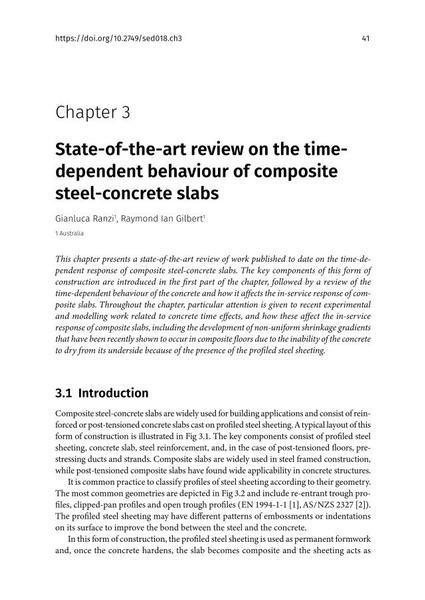State-of-the-art review on the time-dependent behaviour of composite steel-concrete slabs

|
|
|||||||||||
Détails bibliographiques
| Auteur(s): |
Gianluca Ranzi
Raymond Ian Gilbert |
||||
|---|---|---|---|---|---|
| Médium: | chapitre de livre | ||||
| Langue(s): | anglais | ||||
| Editeur: | International Association for Bridge and Structural Engineering | ||||
| Publié à: | Zurich, Suisse | ||||
| Publié dans: | Time-dependent behaviour and design of composite steel-concrete structures | ||||
|
|||||
| Page(s): | 41-59 | ||||
| Nombre total de pages (du PDF): | 19 | ||||
| Année: | 2021 | ||||
| DOI: | 10.2749/sed018.ch3 | ||||
| Abstrait: |
This chapter presents a state-of-the-art review of work published to date on the time-dependent response of composite steel-concrete slabs. The key components of this form of construction are introduced in the first part of the chapter, followed by a review of the time-dependent behaviour of the concrete and how it affects the in-service response of composite slabs. Throughout the chapter, particular attention is given to recent experimental and modelling work related to concrete time effects, and how these affect the in-service response of composite slabs, including the development of non-uniform shrinkage gradients that have been recently shown to occur in composite floors due to the inability of the concrete to dry from its underside because of the presence of the profiled steel sheeting. |
||||
| Mots-clé: |
béton
|
||||
| Copyright: | © 2021 International Association for Bridge and Structural Engineering | ||||
